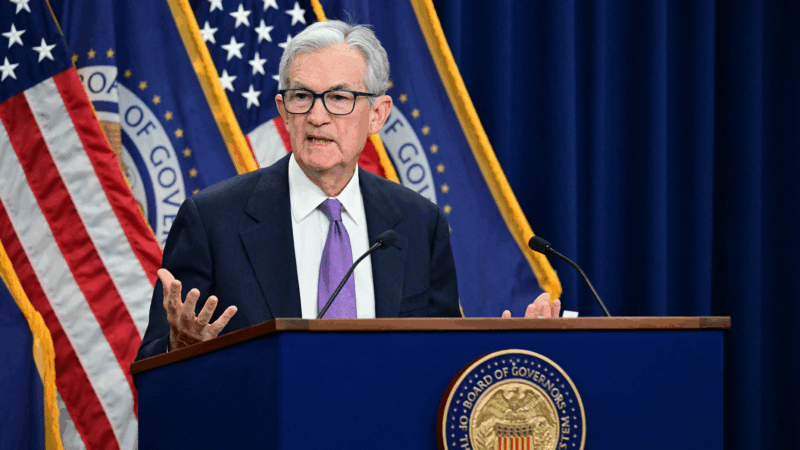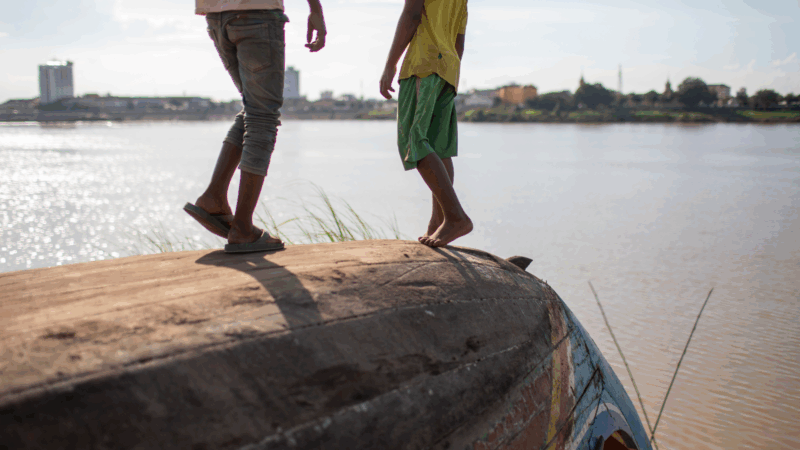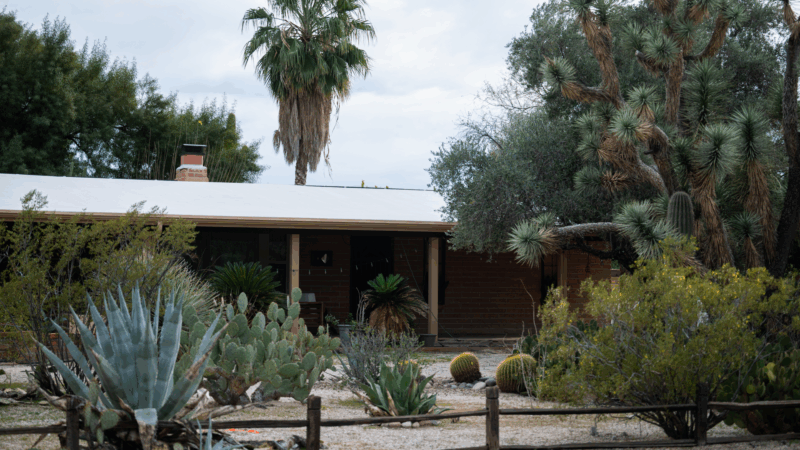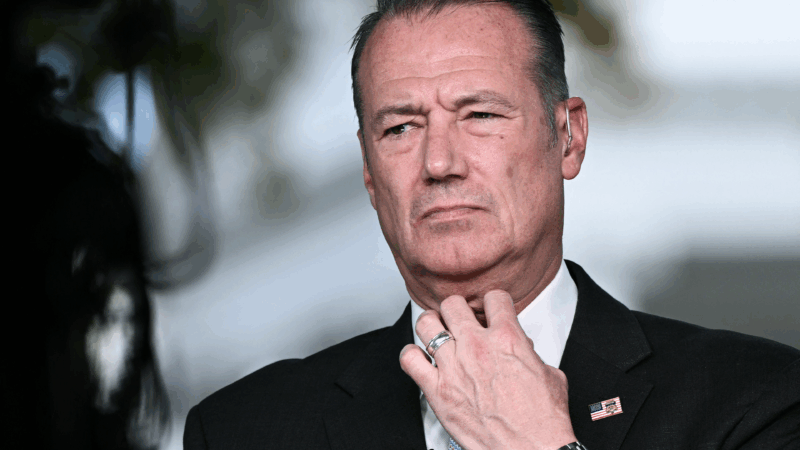South Korean maestro Chung will be the first Asian to head Italy’s famed La Scala
BUSAN, South Korea — South Korea’s K-pop artists are on such a roll across the globe that it can be easy to forget their classical music forebearers were rocking the world’s concert halls well before they were born.
And they’re still at it. One of the notable recent milestones of “K-classics,” as South Korean classical music has been dubbed, is the historic Italian opera house Teatro alla Scala’s choice of celebrated South Korean conductor and pianist Myung-Whun Chung as its musical director.

Milan’s La Scala announced in May that Chung will take the post when current director Riccardo Chailly’s contract ends in late 2026. Chung is the first Asian and second non-Italian to hold the position, and, as La Scala put it in a statement, “one of the most beloved artists among the Milanese public.”
Since 1989, Chung has conducted 84 opera productions and 141 concerts for La Scala, more than anyone other than its official music directors, who have included such musical luminaries as Arturo Toscanini and Claudio Abbado.
“It feels like getting married after loving each other for 36 years,” Chung said of his new position at a May 19 news conference at the Busan Concert Hall in South Korea’s second-largest city.
Chung was born into a highly musical family, the second youngest of seven children. He made his public debut as a pianist at age 7. At 8, he moved to the U.S.
As a teenager, he began performing in a trio with his sisters, violinist Kyung-Wha and cellist Myung-Wha Chung.
Winning second prize at the International Tchaikovsky Competition in 1974 lifted his career to new heights.
Chung moved to Italy in 1982, where he immersed himself in the culture. That includes food, so much so that he grows his own tomatoes and olives.
Chung has conducted many of the world’s top orchestras, including the Berlin Philharmonic and New York Philharmonic. He has served as music director of several others, including the Paris’ Opéra Bastille and the Seoul Philharmonic.

He is particularly known for his interpretation of Giuseppe Verdi’s operas, many of which debuted at La Scala, and his ability to bring out their emotional intensity.
Verdi’s “Simon Boccanegra is a personal favorite,” Chung said at the news conference last month, “particularly because of the title character, Boccanegra, who embodies what a great man should be: The generosity, the warmth that comes through.”
Since Chung’s rise to fame, younger South Korean musicians have claimed an outsize share of prizes in international competition.
South Korea’s robust musical talent pipeline has produced young virtuosos including Yunchan Lim, who in 2022 became the youngest pianist to win the prestigious Van Cliburn International Piano Competition at age 18, and Seong-Jin Cho, the first South Korean winner of the International Chopin Piano Competition in 2015.
Shin Soo-jung, a professor emeritus at Seoul National university, a pianist and friend of Chung’s family, sees three key ingredients to South Korea’s success.
“Number one: Korean folk, they have a really artistic temperament, improvisation and expression of feeling and that kind of thing,” she says. “And number two: There’s always supporting parents, especially mothers.”
And the third ingredient, she says, is South Korea’s growing economic clout, which has enabled young talents to study overseas.
After decades of performing in Europe, Chung began to think of paying it forward. He returned to Korea in 2005 to conduct the Seoul Philharmonic, to foster new talent and musical exchanges.
Chung says he admires maestros such as Verdi for their contributions to humanitarian causes.
“His greatest work was that before he died,” he told reporters, “he prepared a retirement home for musicians, which he built in Milan, and he was he dedicated all his royalties to this place.”
Chung notes that Koreans and Italians have a lot in common: how they express their emotions, their love of singing.
Both are peninsulas jutting off the Eurasian landmass. For centuries before 1871, Italy was a divided nation. Korea was divided in 1945 and still is.
Italy’s reunification during the 19th century had a sort of unofficial anthem, “Va, pensiero,” the beloved chorus from Verdi’s Nabucco, which premiered at La Scala in 1842. Chung has conducted the anthemic piece, which occasionally triggers cries of “Viva Italia!” from the audience.
Chung’s humanitarian cause has been to reunify North and South Korea through music.
In 2012, he conducted the musicians of North Korea’s Unhasu Orchestra and the Radio France Philharmonic in Paris. In 2017, he created the One Korea Orchestra. His concerts have raised money for aid to North Korean children.
But for now, tensions between the two Koreas are running high, and the prospect of Chung conducting an inter-Korean orchestra remains a distant one.
NPR’s Se Eun Gong contributed to this piece in Seoul and Busan, South Korea.
Transcript:
: [POST-BROADCAST CORRECTION: The story incorrectly calls Giuseppe Verdi’s “Va, pensiero” an aria. It is a chorus.]
LEILA FADEL, HOST:
Long before K-pop took off, it was South Korea’s classical musicians who were rocking the music world. NPR’s Anthony Kuhn reports on an historic Italian opera house that’s been around for nearly 2 1/2 centuries and has chosen a Korean maestro to lead it for the first time.
ANTHONY KUHN, BYLINE: Milan’s Teatro alla Scala announced that renowned conductor Chung Myung-Whun will take over in 2027 and serve as music director until 2030. Chung is the second youngest of seven kids in a prodigiously musical family. He made his public debut as a pianist at age 7. At 8, he moved to the U.S. In 1969, he performed in Arensky piano trio on “The Ed Sullivan Show” with his two diva-esque sisters, violinist Chung Kyung-Wha and cellist Chung Myung-Wha.
(SOUNDBITE OF CHUNG MYUNG-WHUN, CHUNG KYUNG-WHA AND CHUNG MYUNG-WHA PERFORMANCE OF ARENSKY’S “PIANO TRIO NO. 1, OP. 32”)
KUHN: Chung Myung-Whun studied conducting at The Juilliard School in New York in the 1970s. In a statement, La Scala described Chung as one of the most beloved artists among the Milanese public. Since 1989, Chung has conducted 141 concerts with La Scala. Chung told a recent press conference in Busan about his new job.
(SOUNDBITE OF PRESS CONFERENCE)
CHUNG MYUNG-WHUN: (Speaking Korean).
KUHN: “It feels like getting married,” he said, “after loving each other for 36 years.” Chung says he’s especially fond of Giuseppe Verdi’s operas, several of which debuted at La Scala.
(SOUNDBITE OF PRESS CONFERENCE)
CHUNG: There are two operas that I particularly love. One is “Don Carlos”…
(SOUNDBITE OF OPERA, “DON CARLOS”)
UNIDENTIFIED MUSICAL ARTIST: (As character, singing in non-English language).
(SOUNDBITE OF PRESS CONFERENCE)
CHUNG: …And the other one is “Simon Boccanegra.”
(SOUNDBITE OF OPERA, “SIMON BOCCANEGRA”)
UNIDENTIFIED MUSICAL GROUP #1: (As characters, singing in non-English language).
(SOUNDBITE OF PRESS CONFERENCE)
CHUNG: The “Simon Boccanegra” is a personal favorite, particularly because of the title character, Boccanegra, who embodies what a great man should be. The generosity, the warmth – that comes through.
KUHN: Since Chung Myung-Whun’s rise to fame, younger South Korean musicians have claimed an outsized share of prizes in international competition. Shin Soo-Jung is professor emeritus at Seoul National University, a pianist and friend of Chung Myung-Whun’s family. She sees three key ingredients behind South Korea’s success.
SHIN SOO-JUNG: No. 1, Korean folk, they have really artistic temperament, improvisation and expression of feeling and that kind of thing. And then No. 2 is there’s always supporting parents, especially mother.
KUHN: And the third thing is South Korea’s growing economic clout, which has enabled young talents to study overseas. After decades of performing in Europe, Chung Myung-Whun returned to Korea in 2005 and focused on fostering new talent and musical exchanges. He says he admires maestros like Verdi for their contributions to humanitarian causes.
(SOUNDBITE OF PRESS CONFERENCE)
CHUNG: His greatest work was that before he died and many years before, he prepared a retirement home for musicians, which he built in Milan, and he dedicated all his royalties to this place.
KUHN: Chung notes that Koreans and Italians have a lot in common – how they express their emotions, their love of singing. Both live on peninsulas jutting off the Eurasian landmass. For centuries before 1871, Italy was a divided nation. Korea was divided in 1945 and still is. Italy’s reunification had a sort of unofficial anthem – Giuseppe Verdi’s opera, “Nabucco,” which premiered at La Scala in 1842. Chung Myung-Whun has conducted his famous aria, “Va, Pensiero.”
(SOUNDBITE OF OPERA, “VA, PENSIERO”)
UNIDENTIFIED MUSICAL GROUP #2: (As characters, singing in non-English language).
KUHN: Chung Myung-Whun’s humanitarian cause has been to reunify North and South through music. His concerts have raised money for North Korean children. In 2017, he created the One Korea Orchestra. But for now, ties between the two Koreas are in a deep freeze, and the prospect of Chung Myung-Whun conducting an inter-Korean orchestra seems distant.
Anthony Kuhn, NPR News, Busan.
(SOUNDBITE OF OPERA, “VA, PENSIERO”)
UNIDENTIFIED MUSICAL GROUP #2: (As characters, singing in non-English language).
An ape, a tea party — and the ability to imagine
The ability to imagine — to play pretend — has long been thought to be unique to humans. A new study suggests one of our closest living relatives can do it too.
How much power does the Fed chair really have?
On paper, the Fed chair is just one vote among many. In practice, the job carries far more influence. We analyze what gives the Fed chair power.
This complex brain network may explain many of Parkinson’s stranger symptoms
Parkinson's disease appears to disrupt a brain network involved in everything from movement to memory.
‘Please inform your friends’: The quest to make weather warnings universal
People in poor countries often get little or no warning about floods, storms and other deadly weather. Local efforts are changing that, and saving lives.
How the use of AI and ‘deepfakes’ play a role in the search for Nancy Guthrie
As artificial intelligence becomes more advanced and commonplace, it can be difficult to know what's real and what's not, which has complicated the search for Nancy Guthrie, according to law enforcement. But just how difficult is it?
Immigration officials to testify before House as DHS funding deadline approaches
Congressional Democrats have a list of demands to reform Immigration and Customs Enforcement. But tensions between the two parties are high and the timeline is short – the stopgap bill funding DHS runs out Friday.








